When it comes to music theory games, do you fall more on the frustration or magic side of thinking?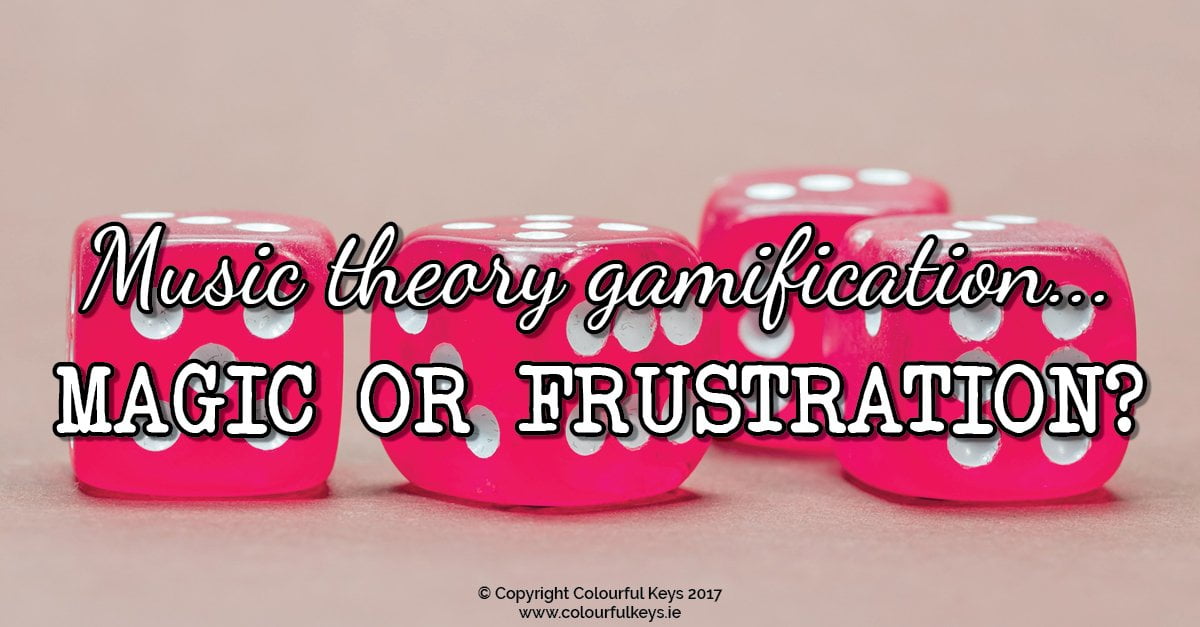
Most of us have a little of both. We love the feeling of watching a kiddo laugh while learning about articulation…but don’t relish the hour we spent looking for the activity that would actually teach that concept properly.
The Magic of Music Teaching Games
There are so many reasons to use music teaching games in your studio. Here’s my top 3 of the many benefits.
FUN for the Students
This is the first one that comes to mind for most of us.
Kids. Love. GAMES.
If there’s one thing that children were made to do, it’s play. Playing is how they learn, and how they connect with other children.

So, if we can use this natural affinity to our advantage, and teach kids through music teaching games, that’s got to be a great thing.
It means we don’t need to nag or bargain to get the theory work done. And it means students love coming to our studio because it’s such a fun place to be.
Rewarding for YOU
It’s so very telling of the types of people teachers are that I’m putting this second, right? As teachers we tend to think of the students’ experiences first.
But music teaching games also make lessons more fun and rewarding for you as a teacher too.
This is incredibly important. If you’re happy and getting lots of giggle moments every single day – you’ll be healthier and have more energy for your teaching.
Don’t you think your students deserve a happy healthy teacher? I think they do. This is one of the reasons I make time for music teaching games in my studio.
Rock Solid Learning
Not only is teaching through games more fun for both you and your students – it can also lead to better learning retention.
If you need a “justification” for using music teaching games this is it.
It’s very easy to forget a list of note stem rules that someone tells you. It’s much harder to forget if you’ve practiced those rules with a super fun fast-paced card game like Note Stem Smash.
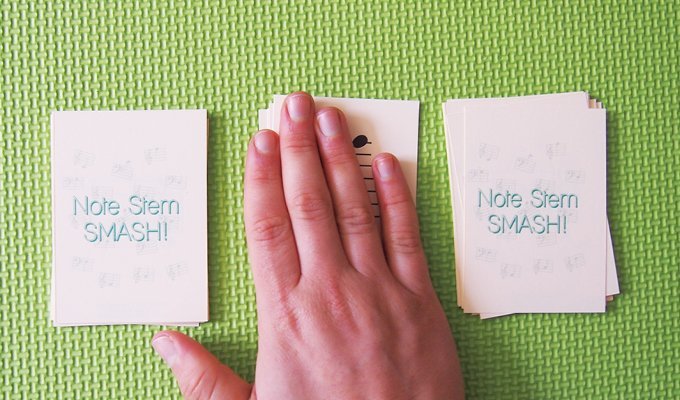
Remember how I said that children were built to learn through play? It’s so true. They not only have more fun learning this way, they also learn more thoroughly, faster, and more durably.
The Frustration of Music Teaching Games
Are you sold on using games to teach music already?
When you read a list like that it’s hard not to be. But then it comes to the practicalities and things start to go a bit pear-shaped.
Lesson Time
Most of us only have 30-60 minutes a week with each student. That’s not a ton of time and it can feel hard enough to fit everything in when we’re going at warp speed.

So, when we think about fitting in yet another thing our heads just swarm with the stress and impossibility of it all.
How? How can we use music teaching games on top of everything else?
The trick is to make sure your games take over some of the work another activity was doing. Music teaching games can’t take a separate chunk of the lesson plan – they have to usurp a pre-existing part of the plan.
I don’t use note naming games and get my students to fill out note spellers or flashcards. We do the game instead of that type of work.
Truly Educational
Along the same lines – we have to make sure these music teaching games really are that…teaching games.
I don’t use games as a fun escape from the lesson. Sure, they provide a welcome change of pace, but that’s not their primary goal.
When a theory game is included in my plan for a student, it’s because I know it will teach them something they need to know.
This is where the frustration can hit. It’s so hard to know exactly what a game will teach (range of notes, terms, or concepts) and whether it will include other stuff that you don’t want to teach your student at that time.
It’s a careful balancing act finding a game that’s appropriate and effectively teaches what you want to teach.
Student Numbers
Then we come to the number of players. If you teach one on one, you probably find fantastic games regularly – only to discover they only work in group lessons.
Or if you teach in groups, you might find the reverse is true. (Murphy’s law, right?) Maybe you’re constantly finding games that are designed for a private lesson setting and you need ones for at least 6 students at a time.
The problem really, is that we’re combining this requirement with all the others we need. Which makes it near impossible to find the correct combination.
Which brings us to…
Planning Time
(Otherwise known as your “free time”.)
How many hours have you spent on Pinterest, blogs, or Facebook groups looking for the perfect game for your student?
Once we take into consideration all the things we need out of this activity, we can get sucked into a blackhole of planning time. So those free games become pretty costly in our most valuable resource – our free time.

You need your free time to decompress and get re-energised for teaching. It can’t be taken up with all this planning and searching.
The Colourful Keys Pixie Dust
I’m really excited to share a resource that could take away all of these frustrations with the wave of a magic wand. It’s called Vibrant Music Teaching and it will change your teaching life.
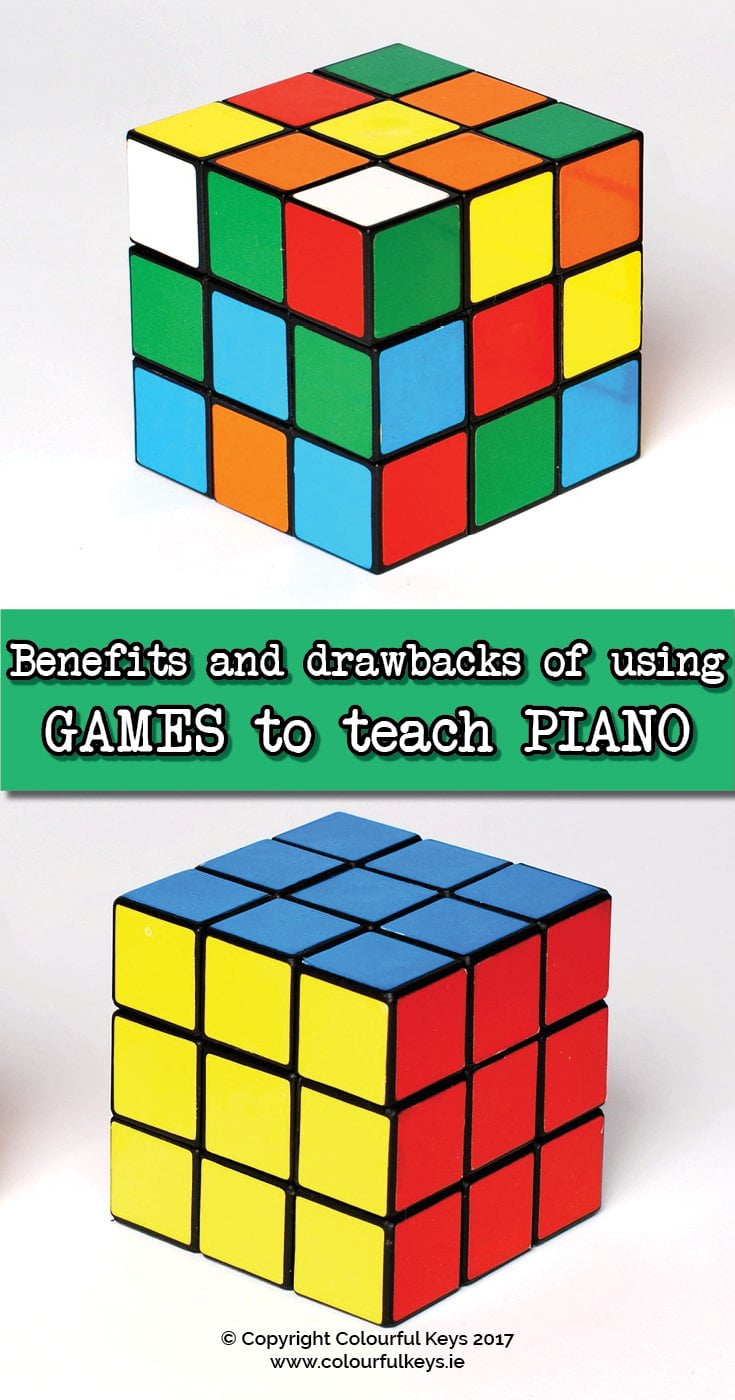
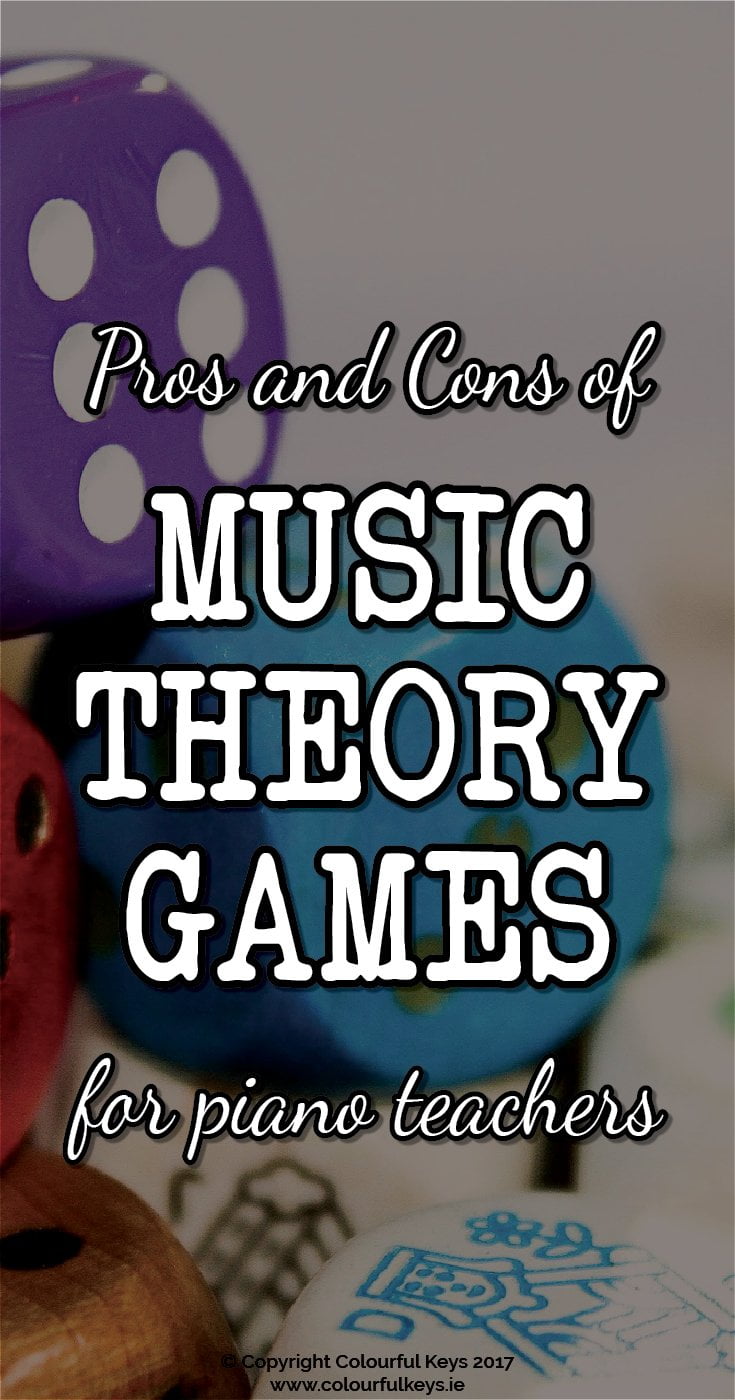
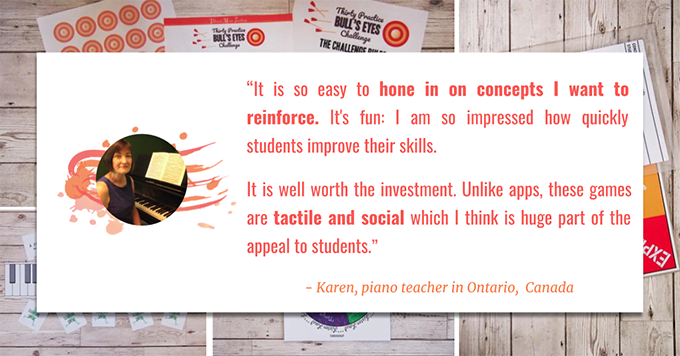
Hi, Nicola,
I have enjoyed being the recipient of your blog. Thank you.
Recently, I have started to question the long-term results of using or relying on games. I know the argument if-it-is-fun-and-they-learn-why-not-use-it. I use games with my students all the time, so I am not against them.
However, in some of my students, I have started to see a dependency on the “fun-factor.” If it is not fun, they decline to apply themselves. Then the parents, not liking to have to remind their children that they have to practice, and complain, “Perhaps it is time for my student to stop. I am tired of having to see to it that my child practices. When practicing in not fun, I take it they don’t have what it takes to do piano for the long term.” There is something to be said for character development in the areas of self-discipline and perseverance. Those traits are not learned when everything is “fun”. I am not advocating to not use games, but I am in the process of thinking through this tension. I know that many different factors are involved when a child does not want to practice. I am not making hard-fast rules, but just wondering and thinking out loud. Best to you,
Allen Long
I see what you’re saying Allen, but I think we’re coming at this from slightly different angles (that end up being the same thing). You see, I want them to see the FUN in the perseverance and I actively encourage this in the way we talk during lessons and just the general vocabulary that’s used around my studio. Practice and hard work can be fun too, it’s not just about games – but about everything having that sense of play.
Hi, Nicola,
Thank you for opening up this topic.
I have been battling the same question as Allen, but from a different perspective. I am a piano teacher who has morphed into an elementary music teacher (1st – 6th) and, of course, we play games! The problem, as Allen succinctly states it, is that students want to play the games ALL the time. I find this especially prevalent from 3rd grade through 5th grade. I actually had a child in tears last week, because I wanted to do a different activity with the song before the class played the game with the song. Those pesky expectations! For my situation, I come up with variations on the game to keep up the learning potential. I also have to save the really exciting, challenging games to manage, for the last minutes of class. Then I can get buy-in to try some of my other planned activities, which, hopefully, will morph into new games which also can be transformed as needed. I look forward to seeing your game ideas! Tina Harrison
I think some predictable structure might be in order there Tina? I’m not a classroom teacher and don’t pretend to know what that’s like – but spelling out the structure and when the games fit in is what I would do first in this situation.
Hi Nicola
My students are enjoying the games that I add to lessons, and I find they are learning faster. My biggest problem is time and finding a way to organize my games.
I know, right?! That’s exactly why I create Vibrant Music Teaching. If you’re curious about how the membership can help with the organisation and games-search, check it out at vibrantmusicteaching.com.